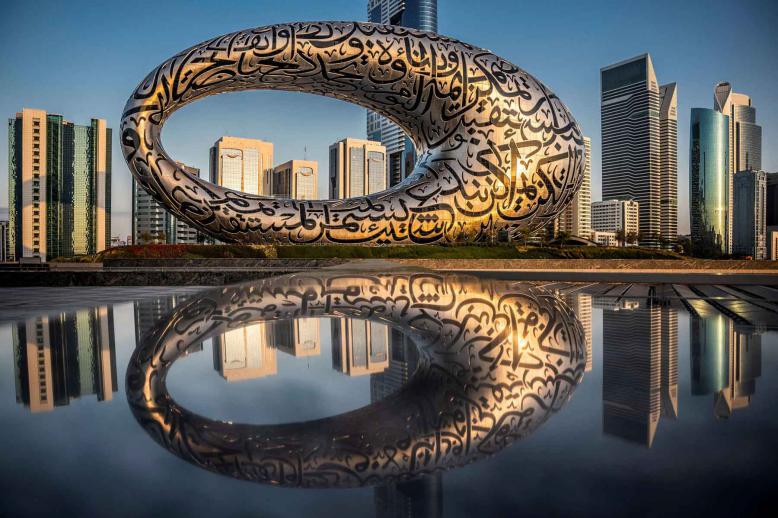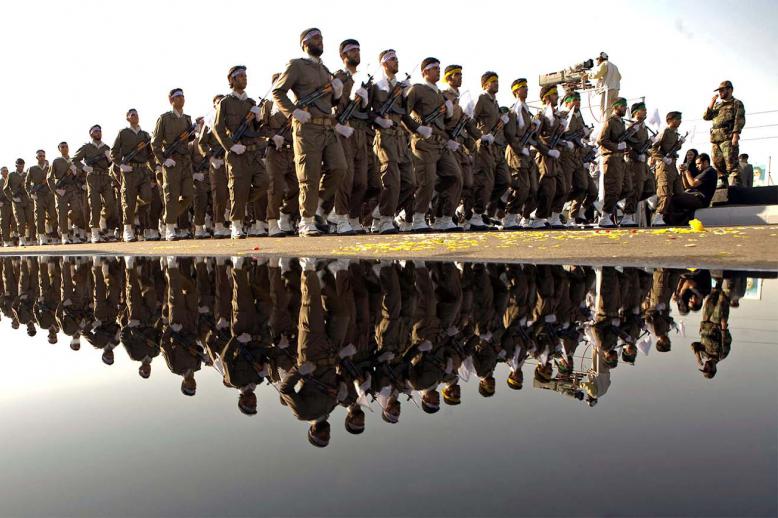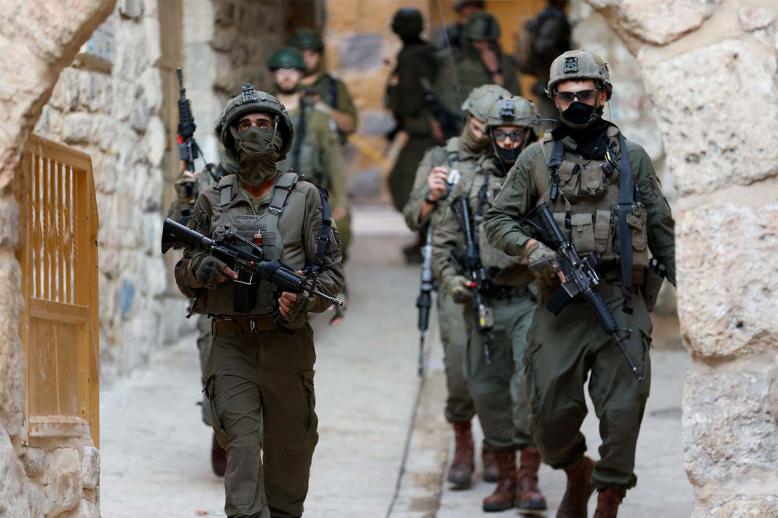The Iranian-American Upcoming Confrontation in Iraq
Since 1979, the US has been looking at Iran as an enemy. It made all possible efforts to prevent Iran from extending its influence outside its geographical borders. It supported Saddam Hussein regime during the 1980s war against Iran to stop it from turning into a great regional power. Later, when Saddam became a threat to the American interests in this region, especially after invading Kuwait in 1990, the Americans decided to topple him. In 2003, they opened the Pandora's box that they cannot now manage the results of that step.
Iraqis, who felt happy because of ridding themselves of dictatorship, are now facing another blow: the Iranian-American battle on their rich land. Both of these powers were accused of being behind the civil war in 2006 that left many Iraqi victims.
These players are now blamed because they lead Iraq to the brink. Iraqis must not allow the others to turn their country into an arena for settling the regional and international accounts. This is the difficult mission that Iraq's elite must take upon themselves.
Zarif in Iraq
Iranian foreign minister Mohammad Javad Zarif paid a long visit to Iraq. Unlike the American leaders, he confirmed that he could move freely and safely in the Iraqi cities. He visited Baghdad, Erbil, Sulaimanya, Najaf and Karbala cities. He met with tribal elders, religious leaders and militia fighters. Zarif wanted to send a clear message to the Americans: Iraq is our living space.
Zarif stated that the Iranians would stay here in Iraq while the Americans would be forced to leave. It is the rhetoric of war through which he tried to mobilize the Iraqis who are sympathized with it. He wanted to say that Iran is working hard on a brain and heart gain as it considers this a basic cornerstone in its geopolitical aspirations in this part of the Middle East.
Ideologically, the US is an enemy in the eyes of Iraqi Shiites. This can be an added reason for the Iranians to think about their strong relations with them to stand against the US.
Zarif, for the first time talked about the new Iranian project in Iraq. He noted that his government would support the policies of improving the standard of living in Iraq. Iran would also apply a grand strategy to enhance Iraq's economy for sustainable development.
Cooperation with Iraq in the Nuclear programs according to the international norms would be a priority to Tehran in the next years.
It seems that Iran has too late realised that its policies in Iraq were wrongly conducted. It paid a lot price for that fault. Iraq is no longer a stable country, nor has it any ability to face great challenges. Without the Iranian-American assistance, the war against IS in Iraq could not have been ended successfully.
However, the Iranian-American approach of conflict will lead to more chaos in this country. Thus, Iraq's policymakers are in urgent need to think twice about how they could find a way out of this stalemate. Otherwise, we are going to face a bloody phase that brings back to memory what happened in Iraq in 2006-2007.
Pompeo in Baghdad
The American secretary of State Michael R. Pompeo had visited Baghdad. He had conversations with the Iraqi officials about the American sight to the Iraqi situation. He met with the Iraqi PM Adel Abdul-Mahdi.
Many sources said that he warned the Iraqi side that the Trump administration would not tolerate popular Mobilization Forces (PMF). Therefore, Iraq must solve this problem as soon as possible.
He informed Abdul-Mahdi that Israel might attack PMF in western Iraq Iraq. Washington will not prevent this scenario in case Iraq does not positively reply to the American desire of dissolving PMF.
Pompeo affirmed that Iran had withdrawn its troops from Syria, but its allies are still deployed in al-Anbar and in the west of Mosul. They are mobilized and trained in Iraq. And they are now spreading along the Iraqi-Syrian borders. The White House believes this will result in changing the balance of power in favor of Iran.
Geopolitically, this area is important. It considers a geographical corridor to connect the areas of what is called " the axis of resistance". It controls the highways connecting Iraq with its neighbours: Syria and Jordan.
It is the soft zone where IS emerged and extended its hegemony on 40% of Iraq's territories. Additionally, it is in the heart of the Chinese plan to revive the Silk road. If the others successfully assert themselves there, the US and its partners will lose a lot. Hence, it is expected that PMF will be attacked in this region.
Pompeo, in this context, insisted that if his country's embassy in Baghdad is assaulted, the American troops will attack the headquarters of PMF in Baghdad. This means, that the war is looming.
The Next Trade-off
A few days ago, Iraq was the center of world media attention. Many top foreign and Arab leaders visited it. French minister of foreign affairs Jean-Yves Le Drian was one of them. He went to al-Najaf, the hub of creating the Shiite rationality, and met with its religious figures. He conveyed a message to explain the seriousness of the situation on the ground. And he mentioned that IS is still a threat that all parties must work together to counter it.
Personally, I think he attempted to convince the Shiite clerics to release a Fatwa to end the problem of PMF. In a related context, On Friday's sermon, A Shiite clergyman, Mohamed Mahdi al-Khalissi, called the Iraqi government to disarm and demobilize the Iraqi military groups. In exchange, it must legislate a parliamentary act through which the foreign troops can be compelled to leave Iraq.
There is no sign that the USA will accept this equation, nor will the Iranian side do. The Americans fear that Iran will fill the vacuum after their withdrawal from Iraq.
Iran worries that the dismantling of PMF will mean losing a strong friend affecting the nature of the Iranian interests in Iraq. Hence, as Iraqis, we have to produce more options to settle this tension if we want to avoid the shadow of war in our country. In the end, this is the function of politics: Finding the solutions.
Diyari Salih is an Iraqi academic, Ph.D. in Political Geography, Baghdad, Post-Doctorate in International Relations, Warsaw, Focuses on the Geopolitical Issues in Iraq.







